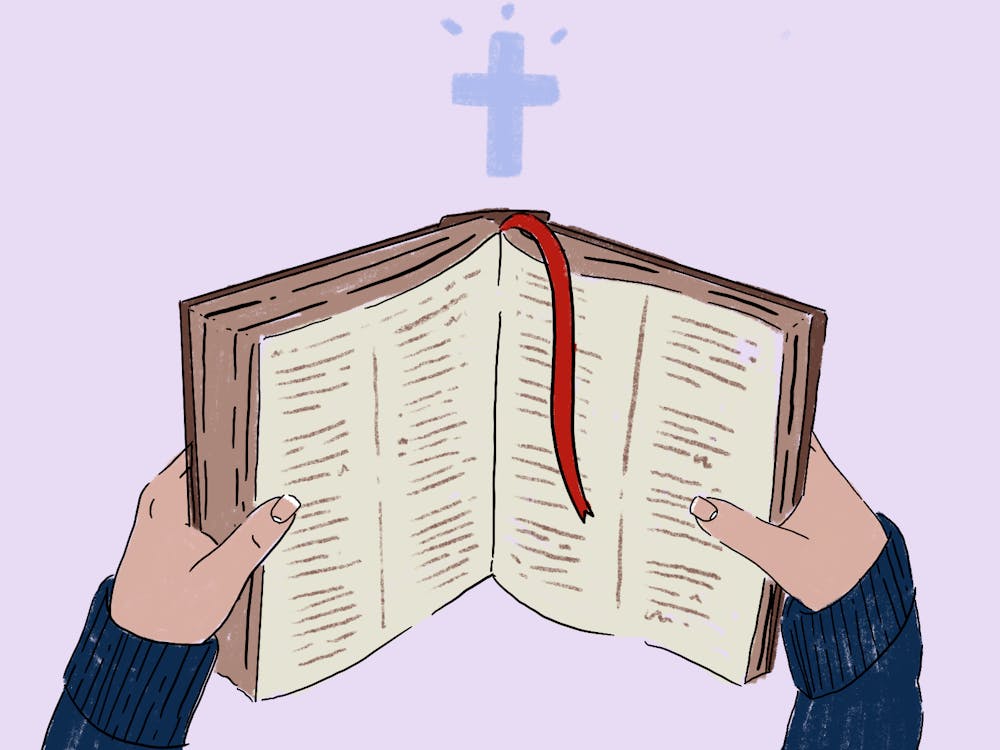
It’s been just over one week since the unjust murder of George Floyd. Just over one week since protests and demonstrations across the nation have sprung into action.
But the truth is, our nation has been hurting for far longer than just one week. We’ve been hurting for as long as this nation has existed, from the systemic racism that is woven into the fabrics of American society, to the white supremacy that both covertly and overtly blankets this nation.
As my Instagram turns into black squares and my twitter news feed floods with real-time updates on protests, the Black Lives Matter movement gains powerful traction. And the pool of privilege I sit in becomes increasingly and undeniably apparent.
Being Asian American and being Christian comprise my identity, which dynamically influences how I understand racial injustice in America. Unavoidably, I have come to see how these two core components of myself have bred passive indifference and inaction. I deliberately avoid debates on systemic racism with my peers for fear of controversy, and I choose not to actively protest anti-Blackness in America because it’s too “controversial.” That is privilege, and it’s something I must directly address, both to myself and to the larger communities I’m part of.
To my fellow Asian Americans:
We wield our power of privilege when we hide behind our “self-earned” success and profitability, arguing that Asians “work harder” than Black Americans, while conveniently assuming Black individuals don’t work just as hard, if not harder. In doing so, we ignore history for the sake of moral complacency and comfort. We forget that the touted “American Dream,” which brought Asian immigrants to America in the first place, was built upon Black slavery and oppression.
We weaponize our privilege as Asian Americans when we scurry away from confrontation with the white majority, when we avoid advocacy for our Black peers for fear of sacrificing our “model minority” facade. Every time we refuse to ruffle the feathers of the white majority when injustice springs forth, we alienate ourselves from minority groups that have sacrificed their lives to carve out acceptance for people of color through protesting and activism. Have us Asian Americans truly forgotten history?
To my Christian community:
Evangelical Christianity in the United States has historically been associated with political conservatism. Now, under Trump’s presidency, openly right-winged racism and xenophobia rhetoric is further established among conservatives, leading to an increasingly fractured Evangelical demographic. Younger Evangelicals are starting to call for greater church engagement on a wide range of social justice issues like racial inclusion in congregations, criminal justice reform, and support for the Black Lives Matter movement.
Meanwhile, a growing sub-group of Evangelicals claim church engagement on such civil matters is too “divisive,” and prefer to remain silent on these topics. Personal accounts of Black church-goers feeling shut off from discussing racism in predominantly white congregations becomes understandable amid a backdrop of increasingly racially segregated congregations across America.
The fact that there even exists this divisiveness in the Church over levels of social justice engagement is frustrating, especially when Christians stress the importance of seeking what is right by protecting the poor and the oppressed, yet uncomfortably divert the conversation as soon as anti-Blackness racism comes up.
John Inazu, a law professor at Washington University in St. Louis, employs the term “confident pluralism” when addressing the role of Evangelicals in the race scene. He writes, “Finding common ground does not mean endorsing every goal or every value of the people to whom we draw near. But it does mean drawing near. That is at the heart of the vision of what I have called ‘confident pluralism.’”
Being a Christian, to me, means to actively tear down unequal racial barriers and to consistently and whole-heartedly counter systems of racial oppression threaded throughout America’s schooling, housing, criminal justice, and healthcare systems. As a Christian, it is our duty to embrace the Black Lives Matter movement, to contribute to a movement that vigorously works for the freedom and justice of Black people, and, by extension, all people, and not to shy away from it. We can share this goal with other groups, despite differences that may exist.
So to my fellow Asian American Christians:
We are part of a unique niche in American society that seems to tell us it’s best we stay out of the fight. Admittedly, I’ve lived this way for much of my life. Now, as our nation is thrown into turmoil, I ponder the damage I’ve done to the Black community by doing so. Martin Luther King Jr., in his "Letter from Birmingham Jail," writes, “Shallow understanding from people of good will is more frustrating than absolute misunderstanding from people of ill will. Lukewarm acceptance is much more bewildering than outright rejection.”
As Asian American Christians, we must be cognizant of our privilege and how it leads to ignorance and complacency. It must challenge us to stand in solidarity to fight alongside the Black community.
Resources: https://blacklivesmatters.carrd.co/

LARK YAN is a rising College junior from Toledo, Ohio studying Health and Societies. Her email address is larkyan@sas.upenn.edu.
The Daily Pennsylvanian is an independent, student-run newspaper. Please consider making a donation to support the coverage that shapes the University. Your generosity ensures a future of strong journalism at Penn.
Donate



